
Emotional coherence – Understanding others better
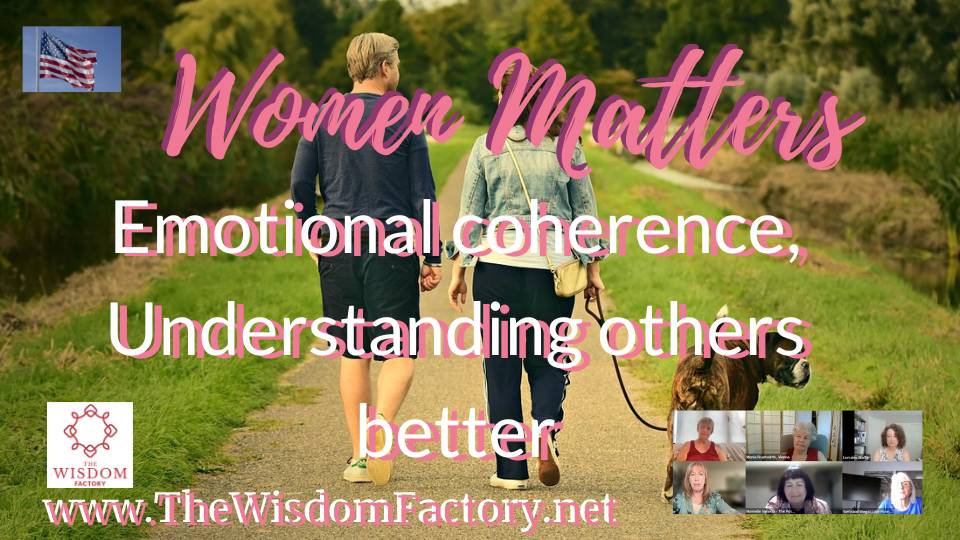
Heidi writes
Real understanding of the situation and the character traits of the other can help a lot to not be triggerted by their behavior which doesn’t correspond to our ideas and expectations. But this doesn’t mean to tolerate inadequate behavior by all means. An interesting exploration of experiences in our lives.
The conversations took place in Nobember, 2025
### Summary
The video transcript captures a rich, candid group conversation among a circle of women reflecting on their personal and professional lives, relationships, and emotional well-being. The discussion unfolds as a virtual check-in, where participants share updates about their current challenges and joys, then dive into a deeper dialogue about navigating interpersonal dynamics, especially conflict, power balances, and emotional coherence in relationships. The participants explore themes like the emotional labor of working in performing arts, coping with winter blues, managing power differentials in supervisory roles, and the complexities of relating to people with different personality types and communication styles. They also delve into introspective insights on conflict avoidance, the potential for personal growth, and how to distinguish between toxic relationships and those that can evolve. The conversation is interspersed with reflections on the use of technology (e.g., ChatGPT) for emotional awareness and the influence of generational patterns on behavior. Ultimately, the group values open, compassionate dialogue as a tool to foster understanding, personal development, and healthier connections.
### Highlights
– 🎭 Insight into the demanding schedule and emotional toll of working in opera and ballet productions.
– 🌧️ Shared experiences of seasonal affective challenges and missing sunshine during gray winters.
– 🧠 Exploration of emotional coherence and strategies to better understand and connect with loved ones.
– 🤝 Honest discussions about conflict avoidance and the courage needed to express oneself authentically.
– 🔄 Examination of personality frameworks like Human Design and Myers-Briggs to navigate interpersonal differences.
– ⚖️ Reflections on power dynamics in professional relationships, especially between supervisors and students.
– 💡 Use of AI tools like ChatGPT to support emotional growth and self-awareness practices.
### Key Insights
– 🎭 **Emotional Labor and Commitment in Performing Arts:** Beatrice’s detailed account of her work with the opera and upcoming Nutcracker ballet highlights the intense dedication required in performance arts. Long hours, minimal days off, and the ephemeral nature of performances reveal the physical and emotional demands on artists. This insight underscores the often invisible labor behind cultural productions and the need for recognizing artists’ resilience.
– 🌧️ **Impact of Environment on Mental Health:** Multiple participants express discomfort with winter’s grayness and early darkness, affecting mood and energy. This shared experience points to the importance of environmental factors on mental well-being and suggests a need for intentional self-care strategies during challenging seasons.
– 🧠 **Emotional Coherence as a Relationship Goal:** Christine’s challenge in matching her partner’s emotional reactivity introduces the concept of coherence—emotional alignment and mutual understanding—as a key to deeper connection. The conversation reveals that coherence is not about mirroring emotions but developing awareness and communication skills to bridge differences, highlighting emotional intelligence as vital in sustaining relationships.
– 🤝 **Conflict Avoidance vs. Authentic Expression:** Christine’s self-reflection on avoiding conflict to prevent disapproval exposes a common relational barrier. The group’s discussion about the consequences of withholding feelings—such as creating distance or misunderstandings—illustrates the complex balance between self-protection and vulnerability. This insight stresses that developing courage to communicate honestly can lead to greater intimacy and conflict resolution.
– 🔄 **Personality Typologies as Tools for Understanding:** The use of Human Design and Myers-Briggs frameworks by participants reveals how personality models can facilitate empathy and reduce interpersonal friction. Recognizing innate differences in processing and expressing emotions helps reframe conflicts as misalignments rather than personal failures, enabling more compassionate interactions.
– ⚖️ **Navigating Power Dynamics in Professional Relationships:** Several participants, particularly those in academic or supervisory contexts, discuss the challenges of receiving and giving feedback when power differentials exist. The insight here is that transparency, timing, and framing of communication are crucial to maintaining respect and fostering growth in hierarchical relationships, which can otherwise hinder progress.
– 💡 **Technology as an Emotional Support Tool:** Mona’s positive experience using ChatGPT for awareness exercises introduces AI’s potential role in emotional development. This reflects a growing trend of integrating technology with personal growth practices, offering new avenues for self-reflection and coping strategies in an increasingly digital world.
### Detailed Analysis
Throughout the conversation, the participants navigate various dimensions of human experience: work, personal growth, relationships, and emotional health. The dialogue is notably centered on the theme of relational coherence and conflict management, reflecting the complexities of living and working closely with others in diverse contexts.
Beatrice’s recounting of her opera work exemplifies how professional environments demand not only physical stamina but also emotional regulation, as she juggles long rehearsals and the pressure of live performance. This intense immersion into work, followed immediately by another demanding project (Nutcracker), outlines the cyclical nature of artistic careers and the psychological toll they can exert. Her mention of props involving real food and the backstage dynamics offers a glimpse into the intricate logistics behind productions, enhancing appreciation for the collaborative effort in the arts.
Seasonal challenges, mentioned by several members, bring a grounding, relatable element to the discussion. The gray skies and early nightfall impact mood and motivation, suggesting that emotional well-being is tightly linked to environment and lifestyle. Such acknowledgment invites consideration of holistic health approaches that encompass not just relationships but also self-care and environment management.
The dialogue around emotional coherence, primarily prompted by Christine’s reflections on her relationship with Tom, is a profound exploration of how individuals with different emotional styles can achieve connection. Christine’s struggle to “match” her partner’s emotional reactivity, coupled with her tendency to avoid conflict, highlights common relational difficulties. The group’s suggestions to develop greater awareness and courage indicate that overcoming these hurdles requires intentional practice and vulnerability. The notion that emotional coherence involves understanding and adapting rather than mimicking emotions is a nuanced and valuable insight.
Personality frameworks serve as practical tools to decode differences. The group’s references to Human Design and Myers-Briggs underscore the utility of these systems in recognizing that diverse cognitive and emotional processing styles can cause misunderstandings. By viewing differences as natural rather than problematic, the participants find a pathway toward acceptance and less reactivity in interactions, which can be transformative for both personal and professional relationships.
Power dynamics emerge as a critical theme, especially in academic supervisory relationships. Participants describe the delicate balance of expressing needs and frustrations without jeopardizing support or progress. The conversation reveals how hierarchical contexts complicate honest communication and the importance of timing, framing, and empathy in feedback processes. This insight is relevant beyond academia, applying to any setting with unequal power distribution.
Finally, the mention of ChatGPT as a tool for emotional awareness is a modern twist, illustrating how AI can support self-reflective practices. Mona’s experience with the chatbot providing exercises and even digital “empathy” (smileys and hearts) suggests that technology may increasingly supplement traditional methods of emotional and relational work. This embraces a future where digital tools complement human connection rather than replace it.
The group also touches on intergenerational patterns and how behaviors and emotional responses can be inherited or consciously resisted, adding a layer of complexity to understanding oneself and one’s relational style.
Overall, this conversation is a rich microcosm of contemporary women’s experiences balancing professional demands, personal growth, and relational complexities, offering valuable insights for anyone interested in emotional intelligence, conflict resolution, and interpersonal dynamics.
—
### Word Count: Approximately 900 words
00:00:02
Women matters in the end of November 2025 and I’m so glad that Beatatrice came after a long time we didn’t see her so we decided to do it public today and see what is going on. Would you like to do the check in Bris of us last arrived the first check in? >> Um sure. Hello. Um, I just woke up. It is 9:05. >> 9:05. Yeah. >> Um, I have been working on uh lab uh recently and so my sleep schedule is all crazy because I’ve been in the theater and staying up pretty late. Um,
00:00:52
it’s a beautiful opera. The work is very hard. Um, we opened two days ago. No, last night. No, two days ago. Yeah. Um, and we have two shows this week and then it’s done, which it’s always strange to me how much work is put in for so little performance. Um, you know, I’ve been on this contract for over a month, working six days a week, you know, up to 10 hours a day, only one day off a week, and it’s, yeah, I don’t know. We do three shows. Um, so, uh, that’s mostly been my whole
00:01:36
world. As soon as that closes, I go into Nutcracker Land. Um uh immediately the next day I’m back at work at the ballet. So um what else? It’s gray. I don’t like the winter here. It’s very gray. I miss the sunshine. Um it gets dark very early. Um and I don’t know but otherwise life is good. I, you know, I have good people in my life and um painting my room today and I don’t know. >> So, is today your day off? >> Uh yeah, I’ve got a few days off now. Um we have a brush up rehearsal on
00:02:21
Wednesday and then we have a show on Friday. So, um I get a couple days. I’m trying to, you know, but I’m not, my sleep schedule’s all wonky and I haven’t done laundry in 3 weeks and, you know, it’s one of those times. So, I’m trying to This week people kept asking me, “Oh, what are you doing on your days off?” I said, “I think I’m cleaning the house.” >> Going grocery shopping. >> Yeah. So, um I think that’s that’s about it for me for the moment until I think of
00:02:50
something else. Um I’ll pass it. What it first last in last first in out whatever your rule is. Who who came on before me? >> Can I can I just ask you a question? So, is this the Portland Ballet that is doing LabO and >> Portland Opera? >> Portland Opera. Okay. >> Yeah. >> Cool. Nice. >> Yeah. I they reached out to me this summer. Um I’m one of the assistant stage managers. So, in opera there’s two of them. There’s one stage calling stage manager and there’s two assistant stage
00:03:22
managers, one on each side of the stage and one is mostly responsible for costumes and one is most mostly responsible for props. I’m the props one but we also in opera you have to cue the performers to come on stage which is very different from ballet too. So we both have our scores open. We’re following along and sending people on stage and and there’s a huge amount of props um including real food. So, um yeah, chicken and potatoes and vanilla pudding and bread and wine, which is cranberry, grape juice, and uh
00:03:59
champagne, which is Martinelli’s and Yeah. >> Can I also ask a question? You said you are going in nut land. What is that? Uh, it just means that I’m going to be I I I go straight back to the ballet and when I get back we have one week before we go into tech >> and then we’ll have 19 shows of Nutcracker between now and Christmas Eve >> because Nutcracker land for me would be Russia because >> Oh, I see. No, I just my whole world is going to be Nutcracker every day of the week.
00:04:35
>> Okay, good. Thank you, >> Heidi. Do you have do they do nutcracker around the holidays where where you are? That’s a big tradition here. >> I don’t know. I mean, I’m in the countryside. There’s no ballet at all. So maybe in performance in the big >> cities, but not not here. I’m not really following it. My my theater has become internet, you know, everything goes on internet. Concerts, I watch the concerts live. Many concerts live. many concerts not live and also ballet sometimes on
00:05:09
medishi.tv uh TV is wonderful channel for classical music and for ballet and it’s really good. So I see these things but hardly ever I go into theater now. It was different when I still was in Berlin. There was I was in opera twice a week or in a concert but times changed. >> Would you like to continue Christine? >> Yeah I’ll check in. Um, today we are starting the remodel of our uh master bathroom. So, I’m glad I’m not there. I’m I’m in my office right now. I’ll be here all day. Tom’s at home.
00:05:54
He’s going to have to deal with the noise and the dirt and all of that. So, it was a busy weekend. Not relaxing at all cuz we were getting everything out of our closet and out of the bathroom to prepare for its destruction. And um yeah, so it was a lot of work. Uh what else? So I’ve been working on trying to uh get better at coherence. So, I mean, Tom is so into integral and he’s been suggesting that I could become a little bit more, what would the word be? Adept, capable at matching his coherence.
00:06:44
And um I find it very difficult. Uh he’s much more reactive and emotional than I am. I’m kind of like this steady person and he’s reacts a lot more. So, um I would love any tips from the group about how to access that, how to be aware of it. Um he seems to be aware of it in ways that I just don’t pick up on. And um whether it’s a look or something he says or something that happens, you know, he’ll go, “Don’t didn’t you feel that?” and I’m like, “No,
00:07:20
I didn’t.” So, I would love any tips from those of you who know how to get to coherence. Uh, that would be great. But other than that, um, I’m counting down the weeks. I think maybe I have about six more weeks at work till the end of December. Um, so yeah, I’m counting them, but everything else is good. Uh, and I will pass to Mona. >> Yeah. Uh, we had miserable weather in Vienna. As I told Heidi already, it rained all day. And of course, there are now the Christmas markets everywhere.
00:08:01
Wherever you go, you get food and spiral potatoes and masses of tourists. So, uh, yesterday we tried to go to the fitness center to drive to the fitness center. no parking space ever anywhere. So we turned back. Today I decided it was much too miserable to go there. Um but u when Beatrice spoke uh I was reminded of uh my daughter is so excited about the musical Wicked. Do you have you heard of that? >> Wicked. >> Yes. Um, it’s the prequel of The Wizard of Oz. >> Mhm. >> And everybody’s so excited and it’s so
00:08:49
great and I just I looked at it on YouTube and I decided that’s not I don’t want to go there and I don’t want to see that. My daughter has seen twice. So, it’s amazing uh how the spin-offs of something that was so perfect like The Wizard of Oz, how they uh still make money with that. And obviously good singers in German. This is in German. And yeah, I was wondering we don’t I don’t know about the nutcracker in Austria. lost now. I don’t think we paid yet. Anyway, um the uh the weather doesn’t really agree
00:09:42
with me and uh I’m not really ready to do much. So I just today I was just sitting there in my recliner and reading and for the I don’t know how many times since uh 2021 I’ve been into advita and so the word I am it’s not coherence but it’s um awareness or in German gazign. So, and yesterday I asked the chatpot chat GTP and he did some exercises with me and it was quite it was really good. So, I was amazed uh how you could use JTP. So you use it for advisor practices and he gave some excellent tips which I
00:10:47
really appreciated. Uh and now he sends me smileies and hearts. >> Yes. >> And I asked him well is that no no it’s not that I feel it but it’s pleasant. So okay. So I really sometimes I think uh the times have changed so much. I’m really it’s everything is really very very weird. >> Chat GBT is trying to have coherence with you Mona >> obviously >> it’s it’s re it’s trying to reach coherence right >> so maybe you just send your dear husband
00:11:29
also some smileies and hearts. Okay, I pass on to Gout. How are you doing? Unmute yourself. Sorry, I complete completely forgot about it. Um, and I was in a coaching session and ah, so what about me? Yeah, I I had I had a I’m Goff from Germany and um I had a wonderful mediation session last week with two chefs. And most people that I’m working with, they they are trained in using language to express themselves or so. even if it’s not excellent or so but but still they they can express their feelings their
00:12:47
whatever that might be or but I had one session when I tried to say okay like where do you find it in your body and how does that feel and and it was like what is that Chinese or what am I talking and this this guy was really like um had a hard time to actually feel what what’s in the body. And the others, the the the two chefs, they had language like really expressing what’s in them and what’s in their uh mind and how how they feel. And so I I felt like I’m really teaching them a foreign language.
00:13:44
It’s really interesting. Um I mean I and afterwards this um one of them said that was the the best session of many that we had and made a lot of sense and whatever. But I I thought this is we are so used to like we are talking and we are so used to to to have that language and share that like a common language in in and talk about things that you cannot see but like have to feel and have to be aware. So that was very interesting. Yeah. And one of my trainees from last year, I talked to him yesterday and they have
00:14:40
due date for their baby next week on Wednesday and to see how he’s preparing and is so happy and so looking forward and a little bit anxious of being a father. Um, so this is Yeah. was so sweet. Yeah. too and he is around the the age of my kids. So yeah was really I had grandmotherly feelings. Yeah. So and um it’s similar to last time when I talked about my husband. So it’s it’s okay but not not good yet. So >> I think what what what’s for me there that was really missing for
00:15:44
some time now or almost half Yeah. half a year or so. It’s really like the the the bodily contact. Yeah. somebody’s that sick, then this is something we have to look closer how how we can recreate that. And that’s something I’m missing really like cuddling and more. Yeah. And I didn’t get what you said. Sorry for that uh Christine. So I cannot talk to that >> even if I might. >> You can’t even talk to what VR said. She was talking about her work in the theater for an opera
00:16:42
>> and very interesting. Now Victoria, are you here? The other musician in the in the in the room. Hi. I just I just got here, so I apologize for being offscreen. Um I um the the my sort of fatherly priest friend is now 83 and when he he he’s he’s only a guest for masses and so um we follow him around to give him support in his elderly years. Um anyway, he now he’s very very slow and takes his time with every aspect um of the mass, so it takes a while. Um so anyway, I just got back. Um
00:17:33
Oh, did you want me to check in? >> Yes. >> Oh, okay. Okay. Um, actually I was thinking of you, Heidi, because I um I wanted to go to the symphony on um the weekend and um in the olden days all I had to do was send an email and they’d send me press tickets because I have a record of you know being a a music critic. Um and now they’re getting really stingy and and they have a new director of communication and she I I wrote and asked for tickets and she wrote back and said, “Well, I I’m new
00:18:04
here. I don’t know who you are. you know, what outlet are you writing for? And I said, I’m going to be reporting on the concert to a group of uh women in Europe um because Augustine Hadley is performing and they’re all very interested to know um how his career is going. So, I thought at least I’m not lying because So, I’m reporting now. This is my my music critique. Um, I don’t know how many of you know Augustine Hadley, but um, he’s he’s he’s good. So, this is now that I give my my
00:18:41
my review. Um, I’ve I’ve only heard him once or twice in person before myself, but he is I in my estimation the well I mean I don’t believe in reincarnation, but the reincarnation of Paganini. He’s a musician. Yeah, >> the check. The checkin normally is about you and not about somebody who we don’t know. >> Oh, well, if it’s about me, then it’s that I successfully tricked this woman and got tickets to the symphony. And I’m glad that I did. Um because I
00:19:15
was ve very disappointed. And um what else about my check-in? Um tonight I’m going to in fact in a hour or two I’m going up to LA. I’m going to see. Oh, this will be interesting for Beatatric whom I I never see Beatatric except in these groups. So, this is my chance. Um, I just got a text from Peter Cers, the not not the dead British actor, but the very much alive um American opera director who was one of he’s like a brother. We were classmates at Harvard and we’re old friends.
00:19:50
Anyway, I’m going to see him today. I haven’t seen him for I don’t know how long, at least a year. Um he’s been traveling around the world for 5 months directing operas. Um he lives in LA. So we’re going to get together. I’m going to go to his house today at 3:00 and uh catch up on quite a lengthy time that we haven’t been seeing each other. And then tonight is the grand opening of the Gorilla Girls who were the um the artists who were um really pushing hard in the like they they pretty much were
00:20:21
responsible for the feminist movement in the United States in the 60s and um it’s at the Getty the Getty Center but it’s a it’s at the Getty Research Institute which is a um which is focused it’s an exhibition but it’s going to be I’m sure very heady and not sort of low on visuals and high on like documentation and whatever materials um because the entire archive of the Gorilla Girls is at the Getty if any of you would like to come and research. So um those openings are usually really wild and crazy and
00:20:52
fun because um the last one I went to was a was a show about the gay um movement. >> Oh, I’m sorry. I’m talking too much. Okay, goodbye. >> Go check in. >> Goodbye. It’s left to me because we have almost done half an hour and we haven’t come over the check-in yet. I do a short check-in uh connecting with the music. I was last Saturday, a week before in Cambridge in Queens College in a a wonderful choir concert. I mean, the soloists were not so really good, but the the the venue was wonderful. outside
00:21:32
there were um uh fires. It was gray fox day around so there were um fireworks and everything. So, it was was a great time and I I’m back now since uh Wednesday and I will fly back in two weeks and be there for 10 days and then relationship goes on and very nicely and I’m really ah because Christine you were asking for for advice. I’m studying a lot about the different types of people and Marcus is completely different than me in in human design and also gene keys and also um uh for me I’m a four in
00:22:19
annual type and he is probably a seven. So I use GPT and allow TPT to tell me what’s the differences and where to to be attentive and where and I for the first time I really understand how people are different and how I can cope with this that I cannot cannot start in my own idea of how people need to be. uh I kn theoretically I knew that but now I’m confronted with this and I find it really amazing what you can learn about these things and you with chri it’s figuring out for you a little bit you
00:23:03
know and I’m absolutely grateful for to have that because otherwise probably I would fall into my old why doesn’t he see this why doesn’t he react like this and blah blah blah and now I I I understand that And I know how to I get to know how to deal with people and their modes of being in the world without expecting that they are like me and that is a huge huge huge huge gift for me. So maybe you you try to ask uh Chad TBD about the human design chart. I mean you have to figure that out for you. You go
00:23:45
to the websites and get the charts and then ask them what is the difference? Where do we trigger each other? I asked that for instance, you know, and things like that. Uh if you want we could continue uh in this way of what are our needs and what do we think we can expect of other people while not really realizing that they are in a different situation and in a different um soul pattern let’s say I mean Gro in your case it’s different I can relate to that too because when Mark was so the many things which before were normal
00:24:28
uh just was not the not the moment to to be like this. So I hope that it will change again. But I’m talking about the structural character uh and and and soul patterns as I said uh which are different and still you can find a good understanding and not uh blame the other for being as he or she is. You know that’s uh fundamental. Do you have um uh experiences where you were so uh disappointed or so I don’t know what because you thought the other is not loving you because you uh didn’t expect
00:25:14
didn’t fulfill your expectations or something like that. >> You’re asking all of us or >> everybody? Yeah. Who wants to answer? I can throw into the mix also the MyersBriggs uh personality type and I don’t know much about it but Stefan the Wifflow my WLO colleague he is um master in in that and so when we started training or so then he’s really like okay he is this um ENTP he is uh this type and um I’m I’m just I wanted to find it so that’s why I’m looking at the website um what I find
00:26:14
very interesting is um I am an ENFJ yeah and this is like the my emot emotional part is outward. So I can get people pretty well and then I have internal thinking and so so there are different traits that you have and um if people are outward with their thinking they are completely different than than me. So I can um I can feel people pretty well but I don’t have the words right away and others they they can okay they have any feelings and they can uh uh express it right away and and yeah or
00:27:14
somebody needs >> are you a protector in human Sign >> me? >> Yeah. Do you know? >> I’m um No, I’m um >> Okay. Okay. >> What is it called? Managing generator. So the a double thing. >> Mhm. Manifesting generator. >> Manifesting generator. Yeah. >> Um so what I what I want to say so exactly what you said. So people process the world in an completely different way than I do. At least I mean for the my Brexits at least 16 different types and and and to get that
00:28:04
that they have different needs because they process it more with their head or more with their feelings or more with uh like sensations. Um that was pretty I have to dive deeper into this but um and one of the the very big insights I had with the myas brakes was when in my training when Stefan was talking about the others so everybody like what type am I and and where you can do the test and then they were talking about it and then he told me what what type I am and and there is one where your character
00:28:51
traits are the positive part and the negative part is not what my for me is negative but where I am I triggered >> um and the interesting this was right at the time you you remember that we had a hard time with a colleague and And then I saw this this um when you don’t trust my my intuition or my feelings or you um talking down on me and whatever. So they were in this uh stress head what they call it. There were 80% of the things that I cannot stand and that are hard for me that he was
00:29:47
serving. So there was one person who could serve 80% of the things that trigger me. And then I said I started to laugh and he was talking. I said okay what’s up? I told him that and said, “Yeah, no wonder that we don’t get along.” So, we can talk once in a month. We we can talk on the phone or be in a group or so, but we cannot work together. It’s just not possible because Yeah. So, that’s why I uh want to throw that into the mix. >> Thank you. For me it’s we are totally complimentary
00:30:30
what the one has the other has not and so there is no competition obviously and that’s interesting that’s my journey >> who else Gina hello we are talking about uh how we can get along or how is our experience with people who are totally different than we and process things totally differently and how can we maybe um not get too much triggered and create a relationship as well you know and the experience I was asking for your experience in life do you know that beatric in your work people who you
00:31:10
think they are crazy you cannot get along with them >> uh well since you’re recording this session I’m not sure how much I should say >> so there somebody >> I have been very actively experiencing that um on this contract with the opera um with someone working with someone who I just we are oil and water and um yeah it’s been very challenging but it makes me this whole conversation makes me wonder are we fixed I mean is that is there any room for you know adjustment or growth grow or
00:31:55
change or you know are these things just the way they are always? >> No, >> that’s my question for the group. >> Yeah, but I I immediately jump in. It is not fixed in the sense the tendencies are fixed but you can grow out of it and can can develop and take it less seriously and don’t get triggered as much anymore. Just at the end you laugh about that because you understand what is on the bottom and you don’t get angry anymore. That’s the development. But the the crown tendency they are sort of
00:32:30
fixed. That’s like a soul pattern which you bring. But how you live it there you have the choice. That’s my >> isn’t in the anagram uh that they say ala form. So the like the the default form and the one that’s transformed. So, >> so it’s not that you’re completely different person, but the way you are handling that uh what’s given to you that this might be transformed and not like being an obstacle for having a good life. Christine, you wanted to say something.
00:33:20
>> Um, well, I was thinking that uh one of the difficulties I have in expressing myself is like I’m really big on conflict avoidance. I’m really good at it. And um I can remember as a as a teenager, my mother would ask me, “How come you don’t tell me things?” Well, I was a teenager and I really didn’t want to share things with my mother. um for starters. >> And I think, you know, I it must have been at a pretty early age that I felt like if I said what was I was doing or,
00:33:57
you know, honestly that I might get in trouble. Um and I think that just stuck with me. And so with Tom, he’s often feels like I hold back and I do, but with him it’s I don’t want to provoke his disapproval or his anger. um I don’t want to create a reaction a negative reaction that I have to deal with. And so instead what I’ve created is a negative reaction uh in a different form because uh he feels like I’m not um joining him. He feels like I’m not uh there enough because I am uh holding
00:34:38
back. But yeah, conflict avoidance has been something I’ve uh I have to learn more courage to just kind of break through that fear and just express myself more and then deal with the consequences if there are any. I have a feeling that it’s a lot of it’s in my head and it probably wouldn’t even manifest. So that’s what I’m recognizing. Gina to you the word. You didn’t have the chance not even to check in. So you dive in. >> I’m late so it serves me right. Um, I’m
00:35:29
I was just trying to catch up to the the thought process and and the discussion and so I was really just trying to reflect more on that. Um, I I don’t think I’ve reflected enough yet. I will I’m Yeah, Christine, I have to say that what you said is helpful because Gart um I was loving but I I was loving what you were saying but I wasn’t necessarily understanding the complexity of it. So, um, Christine, your your comment helped, but if I can, Heidi, I’ll come back in a minute once I thought about it a bit
00:36:02
more, but thank you. I think I mean it also depends on the relationship, right? Like if it’s your your life partner or your close partner or someone in your family, then it’s sometimes worthwhile to get into the the mess of it. Um where with um hold on one second. Um but uh you know like in this professional context for me I I have decided that I am not I’m not going to try to have the conflict about it that I’ve actually just figured out how to survive these interactions and you know
00:37:09
and then off gas elsewhere. where come home and complain about it or you know um but that that you know it’s not this is not a long-term relationship. This is something that I have to endure for a month and then I don’t ever need to work with this person again. And in fact I probably if I’m ever offered a job that has this person involved I probably will say no. Um, and so, you know, I don’t know, but then I wonder about it like am I am I taking away an opportunity for this person to
00:37:44
grow by not giving them feedback by not confronting them, you know, or, you know, is is am I letting down the organization by not giving the organization feedback about their hiring choices? Um, it’s it’s not just that we are oil and water, but I also think that this this challenge I I see it reverberating all over the place that that maybe all of us are water and this one person is oil. I don’t know. Um, >> has kind of rambling thoughts, but I that’s Yeah, I I’m much more willing to
00:38:21
to do the conflict if if it’s a relationship that has potential of change and growth and is going to stick around for a while. >> So, that was helpful for me, Beatric. Thank you. um as I’m trying to catch up for my uh tardiness. Um, so I was trying to think of what relationship would be interesting to to chat about and I would say that currently the interesting relationship for me is actually with my supervisors um and just sort of coming to terms with um what I think is important and what
00:38:59
they think is important and and navigating um that power relationship where they have the power for me to proceed or not proceed. And yet at times um I feel like I’m not getting what I want from them and and they’re being very picky about things that I think are kind of irrelevant and it so for me it’s impeding my pro what I feel should be my progress. So, um I think I was really trying to pick up on your your growth point there, Beatatric, because um one of my supervisors is new at being a supervisor
00:39:36
and the other’s experienced. Um and I think that people haven’t always had that honesty with the more experienced supervisor um because because there’s a term, right? There’s a beginning of a term and an end of a term. And people often survive people for short periods of time without giving them feedback. Um, but I did find when I took the time to be organized and in a one-on-one situation and actually took this is took control of the conversation to say, “Look, this is what’s happening
00:40:13
and if I’m not understanding something, then let me know, but this is this is why you’re feeling resistance from me and this is why I’m not understanding you.” And it was really helpful because in the end she said you’re the first student in two to three years to tell me that because she was actually wrong about something and she kept um marking people wrong when in fact she was wrong. Uh and so it’s interesting to take that opportunity and I think that um when I talk to my colleagues who are
00:40:44
going through the same experience, we’re all having to navigate a relationship with someone that’s very casual but about to get really intimate to get through the entire thesis work and how we have to um navigate. So my idea of well that’s being picky um is it actually more helpful than I’m giving it credit for? Um I know these people are dedicated to my success and so I have to watch how I see that this journey through academia. But that’s what I can offer is that it is interesting to say I
00:41:19
think like I’ve actually said at this time I think I’m frustrated. I think we should move on. I think we’ve done this revised this enough and we should move on to the next thing because there’s lots of really big things to move on to. Um, but it is an interesting dance when there’s people that don’t really know each other um, any other way. So, my two supervisors, for instance, have only met because of me. So, it’s a it’s a relationship that has an interesting power balance,
00:41:47
but I have to succeed. So, there you go. We’ll work through it. Yeah, I think power uh has a lot to do with it and how to take risks about being, you know, disclosing and being transparent. Um and a agree with what Beatatric said that obviously in a close and intimate relationship there shouldn’t be a power differential although sometimes there is. Uh but um yeah, it can be a lot more juicy if you finally break through that. And uh uh I have found that the times when Tom and I do have conflict and we work through it,
00:42:34
we always feel closer and more connected. And then of course over time that kind of dissipates and you have to do it again. Um, but yeah, I think in in a power differential, you got to tread really lightly uh when bringing things up with people. Yeah. as a therapist and and I’m sure Routt and other people can relate to this as as a therapist um I have to point out things to people to, you know, help them grow. So, it’s all about how it’s framed and the timing of it, you know, how they can so they
00:43:20
can receive it. Um so, there’s a lot of thought that goes into that, but uh on a personal level, I’m much more reluctant to engage in that. Yes, I think that’s normal. Yeah. And there is also one distinction that that I find very useful is um like the facts and what did I make them mean? So what really happened and then to look um how I was impacted by it when somebody said something or so and and then to look how it lands on the other side. So like to not um yeah before you don’t have the facts and
00:44:20
and how how I dealt with it or how I felt when the other was triggered or whatever then um then it can be a vicious cycle Like people react to what they interpret what that mean means and then they are on another level and then the other one reacts to to the reaction of the other one and then you’re somewhere in the meta realm before you really have the facts and and what happened. So, so that was very very useful for me to not go into that vicious cycle. >> I think it uh asks you a certain amount
00:45:19
of courage. I now feel when there something comes up and I begin to feel a bit shall I say something then I say yes I do say something because these are the moments when you don’t speak at that moment then it will go some strange way and normally I find out that if the if I had understood something wrong it comes out immediately so we don’t have to cling on this own interpretation or the feeling Um, and it flies away when you say it immediately. But when when you keep it inside and then you think about it, but
00:46:00
maybe he or she has meant that that it gets worse and worse and worse and it gets far away from what it really was. So for me it’s my my motto is to always ask. If I haven’t understood something, I ask but relentlessly, you know, I’m I’m the big asker. Mona, I wonder what you are finding out on the internet. In the meantime, did you find the solution? just tried I just tried to save the link get route centers and uh yeah I’m amazed um because in adv whatever approaches you or confronts you is a
00:46:47
part of yourself so um >> I’m wondering whether we are fighting ourselves when we fight and yeah I haven’t had any of these experiences in the last couple of years uh because I sort of outgrow them I imagine uh but if you are in a business then of course you have to find your way and you have to allow to get challenged by somebody else. Um, but it’s it’s very interesting about the power play with some supervisors. That’s that’s interesting. So that’s that must be fascinating.
00:47:40
Um, yeah. Yeah. That’s about all I have I can say about that. I wanted to say you are your own supervisor and so you are fighting with yourself >> probably because >> joking >> but I have become much milder now >> during the last couple of years yeah much milder >> I pass on to Victoria we haven’t heard much of her >> about her coherence with her surroundings. >> I thought you already heard too much. That was the impression I got. >> It was because of the checkin. In the
00:48:30
checkin, we don’t go into topics yet, but we just talk about what was on and so on. So, >> I didn’t have a I didn’t have a topic then and I don’t have a topic now. But thanks for the invitation, Mon. >> Well, we had a topic just now. We were asking how did you feel for instance now when you felt like being overridden? What is that? What does it do with you and how do you deal with it? My blood pressure goes up. My energy level goes up. I learned it from my mother. My mother said that she
00:49:06
had to go into a blind rage in order to accomplish anything at all, even cleaning the house. So, as I get older, I’m modeling myself after her very precisely. >> Are you uh picking that up, too? Do you continue the the generation line? I hope not. Um, yeah, you can see you can see how serious my mother is about that. Um, I think we both are trying try very hard to not Um, now she’s just showing her elephant. Um, we both try very hard not to uh emulate uh the bad features of generations past. Wow, that was very
00:49:56
diplomatic. Um, my grandmother was a force to be reckoned with and I miss her dearly. And also there were a lot of things that I do not want to carry forward. There’s a lot of things I do want to carry forward. Um, but uh, the way that she treated family and had to put herself into a rage to get anything done is not something that I want to do. Um, although I do I I I this is off topic now, but um, I think about her a lot. I have a lot of her clothes and I wear them a lot and I have a lot of her
00:50:31
art in her house and a lot of her dishes and I keep finding myself, you know, I don’t know, like, oh, I’m really representing my grandmother today. I feel like I do it a lot and and it’s kind of unconsciously until I until I, you know, look in the mirror or notice an interaction or something. Um, so that’s interesting. That’s a different topic. Um, how things skip generations or I don’t know people I I’ve heard that people connect more with that that they emulate a generation,
00:51:11
a skip generation as the generations go down. All right, that’s me totally sidetracking the conversation, passing it along. >> I was still still wondering. I am still wondering about Christine’s start of this topic. Is there anything Tom could provide so you would like to have more coherence? Um I don’t know. He he’s uh his intention is very comes from a very loving place. >> So while it feels like I’m kind of being put on the spot, well not kind of, I am being put on the spot. Um
00:52:08
>> and I’m somehow falling short, you know, I’m not kind of meeting his expectation or or what he would like. um he he does come from a very loving place about it in terms of what you know how he’s hoping it will um help us be closer and h you know express greater uh connection and love for one another. So, I think part of the my part of my uh in addition to avoiding conflict and perhaps not saying what’s really on my mind, I think a lot of times I am maybe a little bit more annoyed that there’s an
00:52:43
irritability that I have to figure out because it gets in the way. So, just some irritation. So, but I do have to say goodbye cuz I’ve got a 10:00 client who has already arrived. So, I will see you ladies. Thank you for today. appreciate everybody being here and I’ll see you in two weeks. Okay, >> bye. >> Yeah, we can use this moment for doing a check out. >> Well, it was last in. So, last in, first in, first out, I don’t know. Or last in. Um, I would just say that it’s um
00:53:29
I thought the timing of this topic was helpful because I’m having to I started a reset with my supervisors and um I have to deal with the more uh the more sophisticated older one this week who um I’ve had that those sort of conversations with before. So, I just think it was really helpful because she’s back and uh I can think more about what is what is triggering and what is in me versus what is in her. And I really that was really helpful, Garter, how you and how everyone explained that.
00:54:04
So, I thank you all for that. I’m uh I’m kind of stuck on maybe you’re fighting yourself. I think Mona said that. Um I don’t know. I don’t I don’t I don’t want I don’t want there to be a truth that um the things that I don’t like about this person are features in in me. I’m going to sit with that for a while. But, you know, I mean, how do you Yeah. What what is what are relationships that can actually grow and change? What are things that you’re fighting against your own
00:54:46
projections? and what is just a toxic person that you shouldn’t interact with and how do you know the difference? So, that’s my um that’s my check out bunch of questions. >> Cool. Yeah, >> maybe we could continue this next time because that’s a a really deep topic and particularly how to differentiate between a toxic person or and I from my parents I never got any tools how to have a conflict. It’s really amazing. And I don’t have the feeling that they avoid conflict.
00:55:32
Maybe I just fence them off. I don’t know. But I I have some friends who love to fight with their spouses and I don’t understand it. It’s it’s just it’s such a such a waste of energy in my opinion. But I’m going to have a look at uh website and look at Yeah. And maybe I find out something about why I don’t have conflicts anymore. Maybe I’m too old to have conflicts. Who Who wants to waste his energy on conflicts? My goodness. I’m glad to just to make it through the day. That’s what you are at
00:56:14
my age. Okay. So, that’s my checkup. Thank you. It was a very interesting evening. >> Yeah. And second that that we can do that next time again. I would throw in uh when you said advita, I would throw in a himsa as as one of the words that I would translate like nothing in me wants to harm you. So you don’t have to defend yourself against me and yeah I I think it’s very interesting important and we all have long many many years of relational life experience. So very good topic
00:57:25
and >> I’ve learned a lot over time. So, >> Victoria with the elephant. >> Um, I’m at complete peace with my elephant. Glad to have seen all of you today and um looking forward to next time. >> Yeah, thank you for having been here. I find it a really important topic. How we come into peace, how we make peace with ourselves and with the others despite their their behavior, despite our own behaviors. So interesting interesting experience. Life is interesting and the
00:58:17
conversations with you are interesting and thank you and we see you in two weeks. Okay, bye-bye.

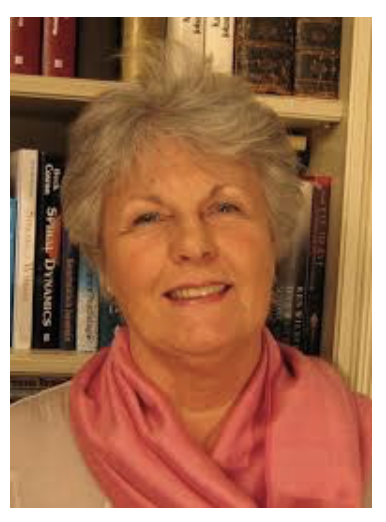
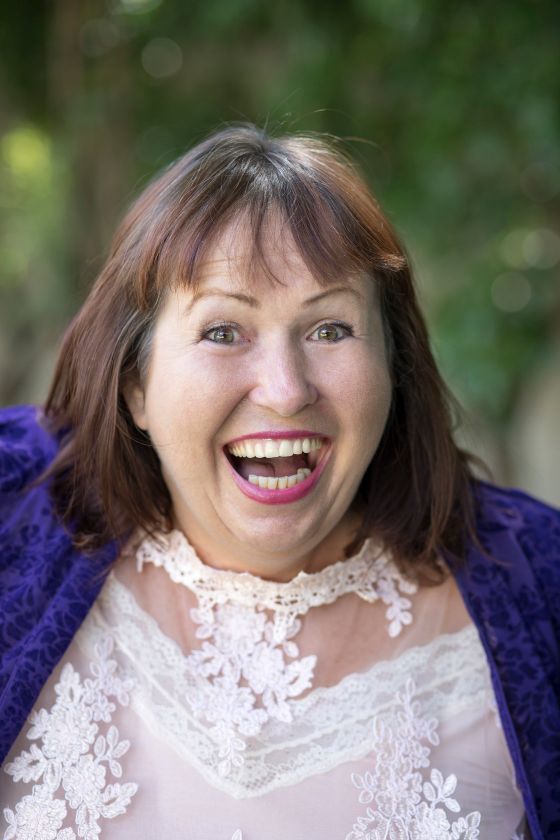

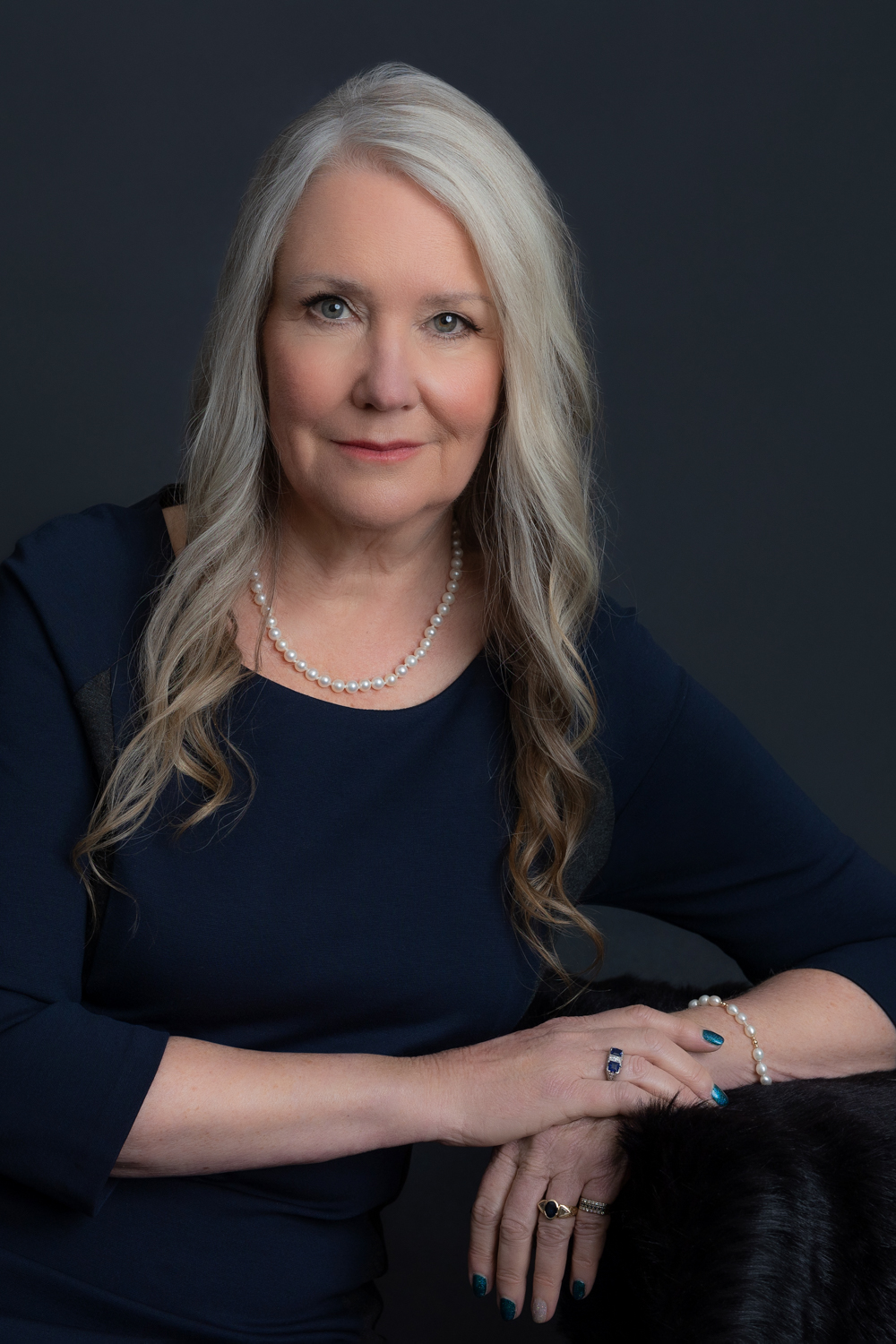

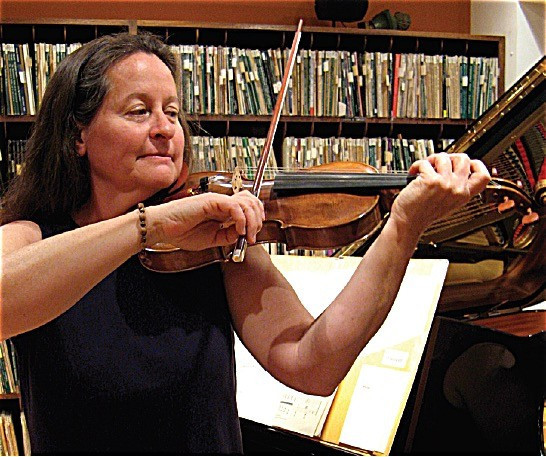
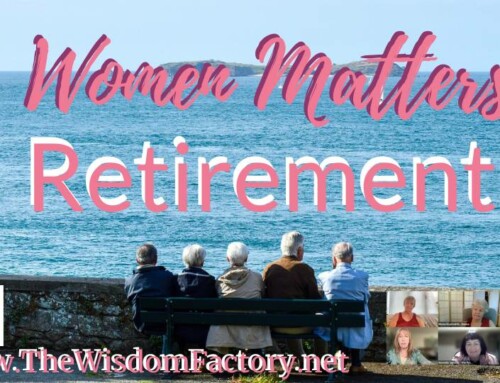

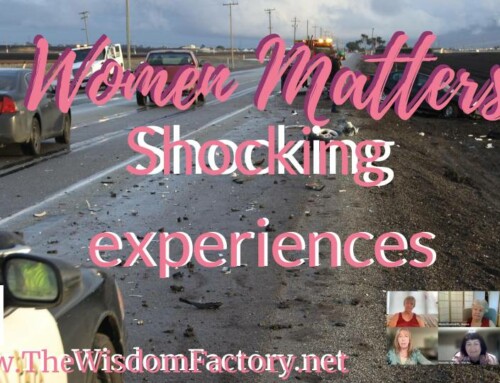


Leave A Comment